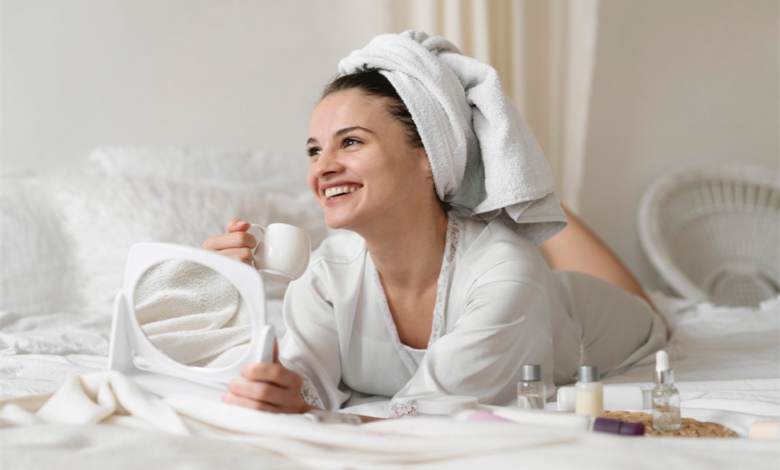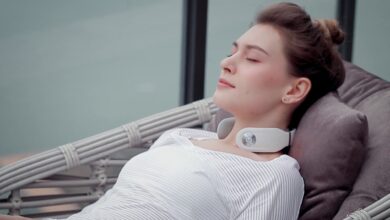Has Your Tween Overindulged in Her Beauty Routine? Here’s How to Find Out

It’s normal for children to want to try new things, according to child psychologists, but there’s a thin line between curiosity and overkill.
Does your child follow a more complicated beauty regimen than you do? Then you are not by yourself. Tweens and teenagers appear to be devoting more time than ever to skincare, largely because to the popularity of Instagram and TikTok accounts.
According to Sonia Rodrigues, M.A., senior director of child and adolescent services at Rutgers Health-University Behavioral Health Care, “kids are taking photos of themselves all the time, and there’s so much stress on looking good on apps like FaceTime and Snapchat.”
The “Get Ready with Me” videos that social media celebrities upload on their platforms feature intricate skincare routines involving several products such as cleansers, scrubs, toners, serums, eye creams, and moisturizers. Some of these products may contain substances that pose a risk to children’s skin.
Learning how to take care of your skin may seem innocent, according to Sara Naselsky, Psy.D., postdoctoral fellow in behavior medicine at Cooper University Health Care. However, there is a risk that children will get overly fixated on evaluating their own skin and bodies.
According to Rodrigues and Naselsky, children’s desire to experiment with their looks and belongings and to feel a part of a trend is a normal aspect of growing up. However, self-esteem problems and a shift in interest toward obsession should raise red flags.
How do dermatologists feel about these vogue Beautycare regimens?
One issue is that retinol and vitamin C, two substances that prevent aging, are present in a lot of the products that children are requesting. According to board-certified dermatologist Katherine Bodiford, M.D. of the Mayo Clinic, “tweens’ skin is at the peak of its perfection.” “These items are not necessary for them.”

For adults, retinol treatments work well for exfoliating dead skin and increasing the formation of collagen; nevertheless, they may have adverse effects on children’s skin. Dermatologists may recommend retinoids to children with acne after balancing the risks and advantages. However, Dr. Bodiford claims that there isn’t any other justification for children without acne to be using them.
And adverse consequences are beginning to be noticed by some doctors. According to board-certified dermatologist Brooke Jeffy, M.D., “I’m seeing more breakouts, worsening acne and contact dermatitis or chemical burns because kids are using these products with highly active ingredients.” “The trend has really picked up steam recently, but it started a few years ago.”
How do you respond when your child requests skincare products?
You may make your child’s experience here more positive in a few different ways.
What steps to take when you determine that something has crossed a line.
Your child may be straying into dangerous area if they seem unduly preoccupied with appearance and frequently make disparaging remarks about their physique.
What else should you search for?
• Your child is withdrawing and refusing to interact with others or engage in activities they once enjoyed with friends and family.
• Because of their lengthy skincare regimen, your child is running late for school or bedtime.
• Your child’s skincare routine must be followed in its entirety before they leave the house.
• Your youngster appears overly fixated with their skin, is always checking their appearance in the mirror, or both.
Here’s how you can contribute:
- Remind your child that their looks aren’t the most important aspect of who they are. Discuss with your child that it’s acceptable to desire to look well, but also find out why they are friends with the people they are. Is it because you find them funny? or that they constantly divulge to you? Make sure your youngster knows that their beauty is never what makes their friends or other people adore them, adds Naselsky.
- Set an example of a positive outlook. It goes without saying that children copy everything adults say and do, so when we talk about our own appearances, we should exercise caution. Do not discuss your wrinkles or pimples with others or draw attention to the newest anti-aging products. “Your children are observing and listening.” According to Naselsky, the younger we instill in our children the notion that “aging” is a bad thing, the more negative associations they will have with a process that is entirely normal.
Even though there is a severe shortage of mental health specialists at the moment, you can find assistance for your child if you know where to go. To begin with, request a list of recommendations from your insurance company, school counselor, and pediatrician. Speak with the HR department of your business as well; they might be able to put you in touch with providers through their Employee Assistance Program (EAP). Numerous organizations provide text-based online therapy solutions. According to Rodrigues, “texting is a less stigmatizing way for kids to connect when they’re uncomfortable with talk therapy.”



